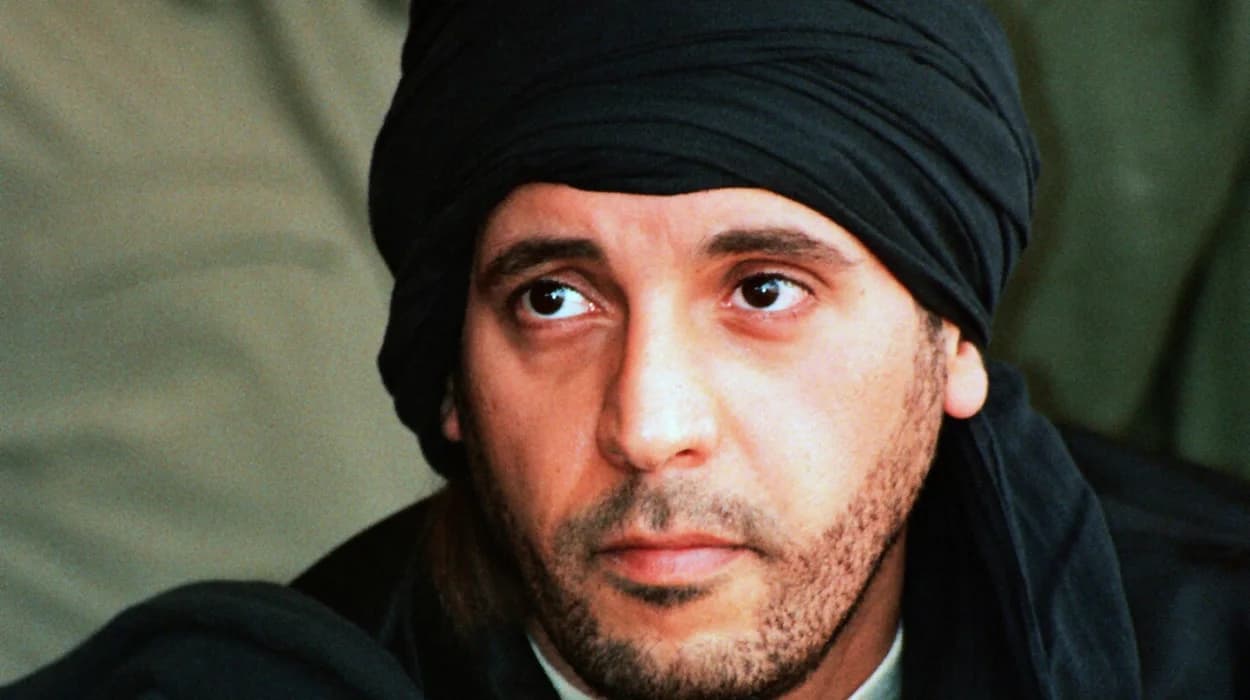Lebanon has approved an unprecedented bail of $11 million for Hannibal Gaddafi, the son of Libya’s former leader Muammar Gaddafi, after nearly ten years in detention. The decision marks a significant development in a case that has drawn international attention and raised questions about legal processes and diplomatic relations. Hannibal Gaddafi, once a prominent figure in Libya’s political landscape, was detained in Lebanon since 2014. The Lebanese authorities granted him bail of $11 million, allowing him to leave detention after nearly a decade. This decision comes amidst ongoing political and legal debates within Lebanon, and it has sparked a broad spectrum of responses from domestic and international observers.
Background of Hannibal Gaddafi’s Detention
Hannibal Gaddafi, born in 1975, was detained in Lebanon
following his arrest in August 2014. As reported by (Nigerian Eye), the
Lebanese judiciary accused him of being involved in financial crimes and linked
to charges of money laundering and illicit financial activities. The case was
complex, intertwined with Lebanon's fragile political landscape as well as the
broader regional instability stemming from the fall of Muammar Gaddafi’s regime
in Libya in 2011.
The detention of Hannibal Gaddafi was seen as part of
Lebanon’s broader effort to navigate national sovereignty, international legal
pressures, and diplomatic relations with Libya and Western nations. The case
was delayed multiple times due to legal and diplomatic hurdles, with some
reports suggesting political influence played a role in its protracted nature.
The Court’s Decision and Bail Approval
As reported by (Nigerian Eye), the Lebanese judicial
authorities approved the bail of $11 million, citing humanitarian
considerations and legal procedures. The decision was approved by the Beirut
Court of Appeal, which ruled that Hannibal Gaddafi could be released pending
further proceedings.
A Lebanese judicial source, speaking under anonymity, explained that the bail was granted after the defendant provided sufficient financial guarantees and assurances not to flee the country. The source added that the decision followed several prior court sessions where evidence and legal arguments were examined:
“This is a significant ruling, considering the length of detention and the legal complexities involved.”
Reactions from International and Domestic Sides
The decision has elicited mixed reactions. Supporters argue
that the bail indicates progress in Lebanon’s judicial independence and adherence
to legal procedures. Some legal experts believe the ruling demonstrates that
the Lebanese judiciary is capable of rendering decisions free from external
influence.
However, critics raise concerns regarding regional stability
and diplomatic balancing acts. Egypt's Al-Ahram, citing diplomatic sources,
mentioned that some Arab countries viewed the bail as a move that could
complicate regional diplomacy, especially given Libya’s ongoing political
turmoil.
Meanwhile, Libyan officials and family members of Hannibal Gaddafi expressed optimism. His lawyer, Ahmed Al-Jarari, was quoted in (Nigerian Eye) as saying,
“This is a just decision. Hannibal is innocent of the charges against him and will now be able to continue his legal battles with renewed hope.”
Human Rights and Legal Perspectives
International human rights groups, such as Human Rights
Watch, have called on Lebanon to ensure a fair trial process for Hannibal
Gaddafi and to guarantee his legal rights throughout the proceedings. The group
highlighted concerns raised during his detention, including extended
confinement without definitive charges, which is often criticised under
international law.
Legal analyst Dr. Yassir Nadar from Beirut University commented that
“the bail, while a positive step, does not signify the end of legal scrutiny. There are still pending charges that require resolution, and the case will remain in the national and international spotlight.”
Implications for Lebanon and Regional Politics
The bail decision underscores Lebanon's ongoing struggle
with judicial independence amid political pressures and external influences.
The case also points to Lebanon’s delicate diplomatic balancing act — seeking
to maintain relations with Libya, Libya's government-in-exile, and Western
nations, while managing internal political stability.
Experts observe that this unprecedented move might open the door for further high-profile detainees or political figures in Lebanon and beyond.
“Lebanon’s judiciary is asserting its authority in a complex geopolitical environment,”
remarked political analyst Karim Al-Haddad.
“However, the fallout from this decision may influence Lebanon’s diplomatic ties, especially if there are perceptions of bias or external influence.”
Future Proceedings and Investigations
Although Hannibal Gaddafi has been released on bail, he
remains under legal scrutiny. The case is expected to continue with further
investigations, hearings, and judicial reviews. The Lebanese authorities have
indicated that proceedings will be transparent, although the process may extend
over the coming months.
Libyan authorities, still embroiled in internal political
conflicts, have expressed hope for further cooperation with Lebanon in the
ongoing legal process. The Libyan government is closely monitoring
developments, especially considering the return of Hannibal Gaddafi to public
life.
Broader Context and Regional Reactions
The decision arrives at a time of heightened political
tension and regional uncertainty. Several Arab nations, notably Egypt and Tunisia,
have expressed cautious interest, urging Lebanon to ensure complete
transparency and adherence to legal standards.
Western countries, including the United States and the
United Kingdom, have taken a neutral stance, emphasizing the importance of lawful
processes and diplomatic dialogue. The US Department of State reiterated its
support for Lebanon’s sovereignty and judicial independence, while advising all
parties to respect legal procedures.
The Lebanese judiciary’s approval of an $11 million bail for Hannibal Gaddafi after nearly ten years in detention represents a significant legal and diplomatic milestone. While it marks a possible step toward resolving a long-standing case, it also highlights Lebanon’s fragile political landscape and the ongoing influence of regional and international actors. The legal proceedings and regional reactions are likely to shape Lebanon’s diplomatic and domestic policies in the months ahead.
